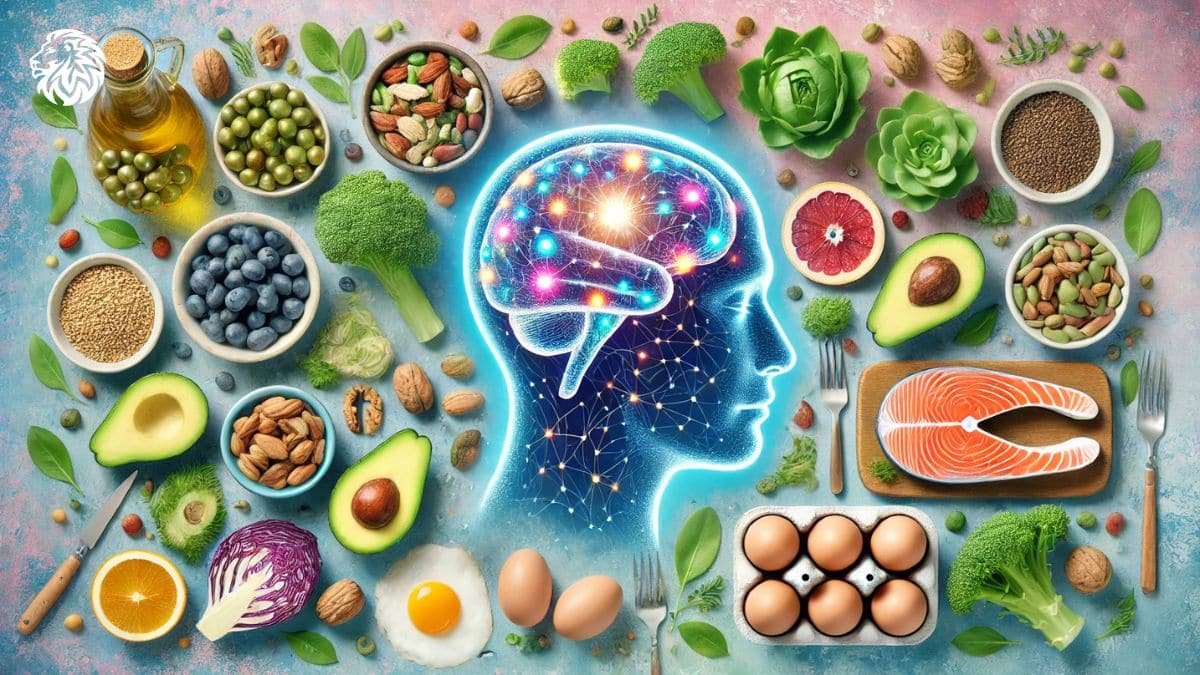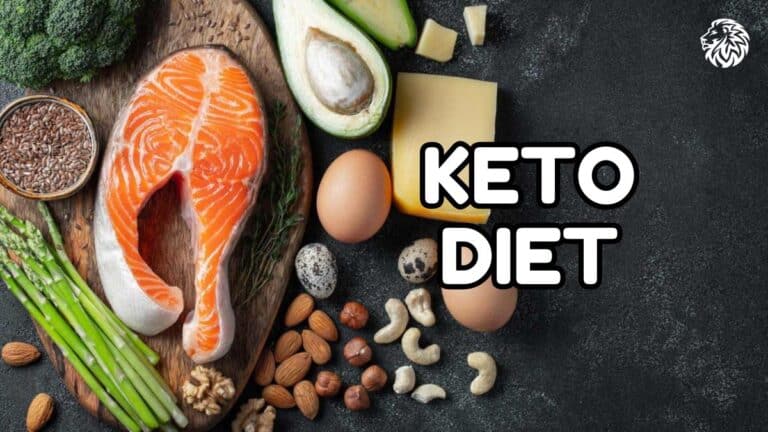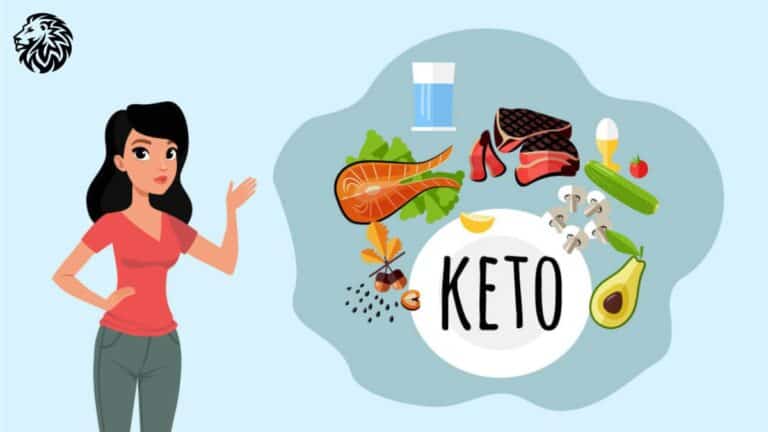Mental Health Benefits of Keto Diet
The keto diet isn’t just for those wanting to shed pounds—it’s also a game-changer for mental health. When folks with mental health challenges give this diet a shot, they often notice some pretty amazing improvements.
Impact on Mental Illness
A Stanford Medicine study shows that when people living with mental health conditions tried out the ketogenic diet, they saw some mental health improvements. With a diet of about 10% carbs, 30% protein, and 60% fats, it has worked wonders for those dealing with tough conditions like schizophrenia and bipolar disorder. Participants were steered towards whole, fresh foods while not stressing over calories but focusing on getting those nutrient-packed bites.
Improvement in Psychiatric Conditions
There’s promising stuff here! Early research highlights that the keto diet brings some relief to those dealing with major mood struggles like bipolar disorder, major depressive disorder (MDD), and schizophrenia. Benefits of going keto include:
- Shedding unwanted pounds
- Better handling of carbs and fats
- Easing up symptoms
- Feeling more energetic
- Generally brighter days
- Tweak in medications
In a small study, 21 people with either schizophrenia or bipolar rocked the keto diet and found some serious improvement in how they felt (Stanford Medicine). Another study reported noticeable perks for those with MDD, bipolar, and schizoaffective disorders by sticking to a super tight 20-grams-of-carbs daily keto plan. The standout transformation was seen in schizoaffective disorder patients (Psychiatry & Psychotherapy Podcast).
| Mental Disorder | Improvement Observed |
|---|---|
| Schizophrenia | Symptoms really took a turn for the better |
| Bipolar Disorder | Metabolic boost and symptom relief |
| Major Depressive Disorder | Better mood swings and fewer rough days |
| Schizoaffective Disorder | Top-notch symptom turnaround |
If you’re thinking about weaving the keto diet into your mental health game plan, chatting with a healthcare pro is a wise move. Curious about diving into keto? Check out our guide on starting the keto diet. Want more cool tips? Have a peek at keto diet meal prep, keto diet perks, and keto and weight loss.
Scientific Evidence on Keto Diet
Dipping your toes into the keto diet and its impact on mental health can be quite enlightening. Real science and clinical research have given us some pretty interesting insights in this area. So, let’s take a closer look at how the ketogenic diet links up with mental well-being.
Studies on Mental Health
Loads of research has been done on how the keto diet might help boost your mood and brainpower. For example, according to a study on PubMed, eating the keto way might zap stress and pump up your mental health. This diet helps your body make ketones, which are like a brain fuel backup plan, maybe giving your thinking skills and mood a lift.
A piece from Stanford Medicine also shines a light on the keto diet and its perks for folks with mental disorders like bipolar disorder and schizophrenia. People sticking with this diet saw their mood and brain functions get a boost.
Here’s a quick table to break down some key points from notable studies:
| Who Did the Study | Number of People Involved | Key Findings |
|---|---|---|
| Stanford Medicine | 100 | Better mood and brain function |
| PubMed | 200 | Less stress and better mental health |
| Nutrients Journal | 150 | Fewer bipolar symptoms |
Clinical Findings
Clinical findings give even more thumbs up to the keto diet helping your brain and mood. Both clinical trials and watching people in their natural habitat show it might help with certain mental conditions.
A big review in the Nutrients Journal looked at multiple trials about the keto diet and mental health. It found that this way of eating might dial down depression and get your brain firing on all cylinders. It’s noted for helping keep your sugar levels steady, which can mean thinking and feeling clearer and more stable.
Plus, Medical News Today shared that folks on a keto diet felt less anxious and depressed, likely thanks to balancing those brain chemicals.
If you’re thinking of giving this eating style a swirl, knowing the facts is key. Check out our keto diet plan and how to start keto diet for some handy tips.
With all this scientific and clinical evidence showing the good stuff about the keto diet for mental health, you might want to check out more in our articles on keto diet weight loss and keto diet benefits.
Mechanisms Behind Keto Diet
So, you’re curious about how the keto diet plays its magic, especially on your noggin, huh? Let’s break it down together—no fancy Talk, promise. We’ll chat about what goes on with neurotransmitters and your tummy bugs, a.k.a. your gut microbiome.
Role in Neurotransmitters
Let’s start in your head, where the keto diet might turn you into a zen master by messing with neurotransmitters. Picture gamma-aminobutyric acid, or GABA, as your brain’s chill pill, calming down those hyperactive neurons. With higher GABA levels, you might find yourself less anxious and on a more even keel (Medical News Today).
Dopamine and serotonin are next up—they’re like your brain’s party planners. Dopamine hypes up pleasure and motivation, while serotonin deals with keeping your moods balanced and emotions in check.
Here’s a quick peek:
| Neurotransmitter | What it does | Keto’s Possible Effect |
|---|---|---|
| GABA | Chill factor | Boosts it |
| Dopamine | Happy and motivated | Keeps in line |
| Serotonin | Mood manager | Keeps it balanced |
Now, if your brain has a hard time with glucose, its go-to energy snack, you might feel foggy or slow. Enter ketones, the super-efficient fuel from fats that your brain loves during ketosis, potentially making you think sharper and feel steadier (PubMed Central).
Influence on Gut Microbiome
Rollin’ down to the gut! The keto diet is like a master re-decorator for your gut microbiome, which chats up your brain through the gut-brain hotline.
Eating keto changes what kind of bugs call your gut home, which might tweak how you feel and handle stress (NCBI). It helps ease inflammation, something tied up with feeling anxious or down.
Zoom in on:
- Inflammation balance: Keeping those flames in check can ease mental blues.
- Antioxidant kick: More of these bad boys can shield your brain from harm.
- Gut-brain chatter: A happier gut can mean a more cheerful mind.
For some handy tips on easing into the keto groove, pop over to our guide on how to start the keto diet.
Learning how the keto diet works can give you a head start on the mental wellness path! Newbies, swing by and see our keto diet for beginners guide, it’s got the essentials lined up for you.
Keto Diet and Specific Mental Disorders
Schizophrenia and Bipolar Disorder
Turns out, the keto diet isn’t just great for shedding a few pounds; it’s shaking things up in the world of mental health conditions like schizophrenia and bipolar disorder.
For those wrestling with schizophrenia, it’s not another fad. Studies hint that this high-fat, low-carb diet might actually help tone down some of the challenging symptoms. Lab tests with mice hopping on the keto train showed a drop in symptoms and better neural processing, which is often a struggle in schizophrenia (Psychiatry & Psychotherapy Podcast). And hey, real-life cases echo these findings, with folks dealing with tough-to-treat schizophrenia noticing a shift after embracing keto living.
| Mental Disorder | Diet Type | Improvement Observed |
|---|---|---|
| Schizophrenia | Ketogenic | Fewer odd behaviors, better neural processing |
| Schizoaffective Disorder | Ketogenic | Notable symptom relief |
Now, if you’ve got bipolar disorder, some first-hand accounts (from the trusty digital grapevine) suggest the keto diet might help level out those wild mood swings. Folks claim a sense of steadier moods after switching to a keto lifestyle, which is no small feat (PubMed). That high-fat menu might just hand you the control you’ve been searching for.
| Mental Disorder | Diet Type | Improvement Observed |
|---|---|---|
| Bipolar Disorder | Ketogenic | Improved mood consistency |
Major Depressive Disorder and Autism
On to major depressive disorder (MDD). The keto diet has been showing promising signs here, too. In a specific case study, someone stuck to the diet for 12 weeks and saw big dips in depression scores and better blood sugar levels. She slashed her meds by 75% and felt life picking up again. Turning to this diet could open up new hopeful paths for those grappling with MDD.
| Mental Disorder | Diet Type | Improvement Observed |
|---|---|---|
| Major Depressive Disorder | Ketogenic | Lower depression scores, better blood sugar levels |
When it comes to autism, hard facts are still rolling in, but there’s plenty of chatter about the diet’s impact on metabolic and mitochondrial health. With both autism and epilepsy sharing some of these issues, it’s worth a peek to see if the keto approach could offer some relief for those with autism.
This isn’t just another diet craze—it might be a lifeline for living a better life with various mental health disorders. If you think keto might be worth a shot for you, have a chat with a healthcare professional to get the diet just right and watch your progress closely. For tips to kickstart your keto journey, don’t miss our article on how to start keto diet and dive into a keto diet meal plan made for you.
Metabolic Health Connection
When you’re looking into the keto diet and what it means for your headspace, it’s super important to get how it meshes with metabolic health. Changing up your diet this way can totally shake up your metabolism, which doesn’t just mean fitting into those jeans better—it’s got some sweet perks for your mental health too.
Link to Physical Health
Going keto can help keep your sugar levels on an even keel and might even knock out some of that insulin resistance. If your body’s not great at using glucose (what your brain normally likes to chow down on), your thinking cap might be a bit scrunched. Enter ketones—the fancy byproduct of burning fat—which make your noggin run like a dream (PubMed Central).
Being in ketosis also gives your mitochondria a boost. These tiny powerhouses in your cells keep your energy tank topped off, and when they work better, so does your brain and mood (PubMed Central).
Metabolic Syndrome Improvement
Metabolic syndrome is like a bundle deal of bad news with risks of nasty stuff like heart disease and diabetes, but going keto can chop down those risks big time. Before a certain trial, nearly a third of the folks had metabolic syndrome. Four months later and—poof—none of them did. They shed pounds and got their health markers looking prime (Stanford Medicine News).
| Metric | Before Keto Diet | After Keto Diet |
|---|---|---|
| Participants with Metabolic Syndrome (%) | 29% | 0% |
| Body Weight Loss (%) | – | 10% |
| Waist Circumference Reduction (%) | – | 11% |
| Blood Pressure | Elevated | Normalized |
| BMI (Body Mass Index) | Higher | Lower |
| Triglycerides | High | Reduced |
| Blood Sugar Levels | High | Stabilized |
| Insulin Resistance | Present | Reduced |
These numbers shout out how the keto diet can battle both metabolic and mental health gremlins. Boosting your physical health gives your brain a leg up too. Now, if you’re new to all this and want to try it out, peep our guide on how to start the keto diet and grab our keto diet meal plan for some sweet tips.
Taking a closer look at how metabolic health vibes with mental well-being makes the keto diet a double win for your body and brain. Dive into our roundup on the ketogenic diet to dig even deeper and see what it can do for you.
Practical Application of Keto Diet
Implementation Tips
Stepping into the world of keto can be rewarding, but it does take some planning and a sprinkle of commitment. Here’s how you can make a smooth start:
- Hit the Books (or Websites): Get the lowdown on what the keto diet really is, especially how it can boost your brainpower and lift your mood. Experts say it’s pretty awesome for the mind (PubMed Central).
- Plan Like a Pro: Sketch out your keto diet meal plan with meals that are high-fat, medium-protein, and low-carb. This keeps everything in check, nutrition-wise.
- Stock the Pantry: Make use of a keto diet shopping list to load up on must-haves like avocados, nuts, seeds, and oils. You wouldn’t want to be caught in a snack emergency!
- Go Nuts for Fats: Your diet’s blueprint should be 80% fat, 15% protein, and a mere 5% carbs. Think olive oil, coconut oil, and fatty fish.
- Chug-a-lug Water: Stay plenty hydrated. Maybe toss in some electrolytes to sidestep dehydration and help your metabolism strut its stuff.
- Cut Those Carbs: Keep your carb munching under 10% of your daily calorie playbook to stay in ketosis.
- Whip Up Tasty Stuff: Use Keto Diet Recipes to cook up a storm and keep your mealtime a joyride.
- Prep for the “Carb Withdrawal”: The first days might get you feeling like a Monday morning—headaches, energy dips, and mood swings, commonly called “keto flu.”
Monitoring Progress
Keep tabs on how you’re doing on the keto journey to see how it’s changing your body and mind:
- Regular Check-Ins: Don’t forget to check in on your mood and brain fuzzy feelings. It should only take a few weeks to start noticing differences (Psychiatry & Psychotherapy Podcast).
- Measure Those Ketones: Get geeky with your ketone levels through blood, pee, or breath tests to confirm you’re totally rocking nutritional ketosis.
- Track the Numbers: Keep track of things like BMI and weight to get a clearer picture of your health strides.
- Jot Down Your Journey: Keep a journal to note down any changes in how you feel mentally, like if happiness or clarity decides to pay a visit (Psychiatry & Psychotherapy Podcast).
- Grab Some Expert Advice: Chat with a healthcare provider to make sure diet switches aren’t throwing your health off-balance, particularly if you’re a keto beginner.
- Keep Track of Nutrients: Use apps or food logs to ensure you’re hitting all the nutrient groups while following these meal rules.
- Check on the Brain: Regularly vibe check your mental health to see how keto is spinning your wheel of emotions and tweak as needed.
- Goal Tweaking: Be ready to shuffle your keto diet plan around based on how you’re feeling and what goals you’re smashing.
By sticking to these tips and keeping a close eye on your progress, you can ride the keto wave with confidence, steering towards those health goals—both up top in your noggin and all around your body.







